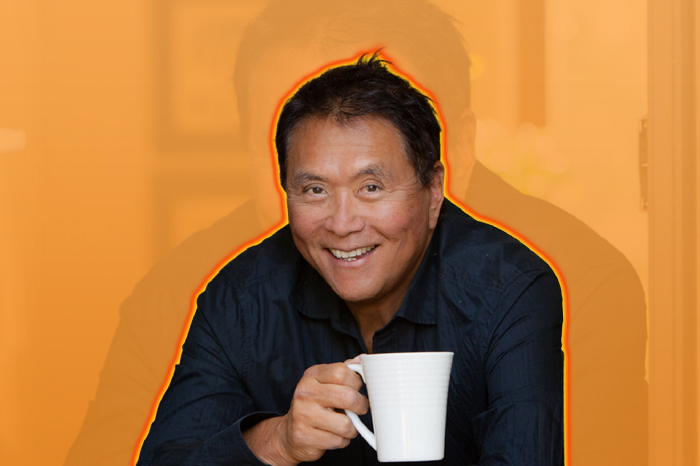Cover Image: Adapted photo of Robert T. Kiyosaki (source)
His lessons stood the test of time
There are not many books I’ve read more than once, but there’s at least one book I keep finding myself coming back to: Rich Dad, Poor Dad, by Robert T. Kiyosaki.
For those who have not read it, here’s a summary of a summary:
The rich don’t work for money, they make money work for them using intelligent investments in assets, not liabilities. They are financially literate and invest in knowledge and skills, not shiny new things. They don’t act on emotion, they act on data.
In the 20th anniversary edition, Kiyosaki adds insight into the reality of today. In this article, I want to highlight some of the most important ones, in my opinion.
Savers remain losers
“Today, interest rates in many countries are below zero, which is why savers are losers.”
In Canada, savings accounts are a joke. They’re pretty much all lower than inflation. If you put even a single dollar in those accounts, you lose money every year. Kiyosaki shows that with every stock market crash, it always picks back up. Investing in the stock market, when done smartly enough, is always a better investment (putting all your money in the stock market now doesn’t count as “smart”).
Country debt is only increasing
“At press time, [USA’s debt] is nearing $20 trillion. That’s trillion…with a T.”
Ouch. We live on money that doesn’t exist. I mean, technically, money is made up anyway, but for it to work, it has to balance somewhere. And well, it doesn’t. And the balance just keeps getting worse year over year. If you trust your government to take care of your retirement, things are about to change.
Decisiveness isn’t an option
“The faster you can make a decision the more likely you’ll be able to seize opportunities — before someone else does.”
Kiyosaki explains that with the increased sophistication of technology, decisions are made in microseconds. If you can’t make up your mind, someone already beat you to the race. More than ever, learning to make decisions quickly is a must-have skill to survive an unstable economy.
Schools are still wrong about the way they teach
“Edgar Dale and his Cone of Learning tell us that reading and lecture are the least effective ways to learn. And yet we all know how most schools teach: reading and lecture.”
I hope the pandemic will at least have a positive impact on education going forward. Sure, it doesn’t look positive at the moment, but once we adjust to the new reality, it’s bound to be one of the sectors with the most innovation.
College is less relevant every day
“No longer does a college education guarantee a job.”
Smart employers are looking for people who can learn, adapt, and do the work. They’re not looking for people who have acquired knowledge from books, but rather people who aren’t afraid to get their hands dirty and get some experience on the field.
You are in control
“If things must change, first I must change.”
You can blame the government or the pandemic for all your problems, or you can choose to become better. Those who do the latter thrive while the rest remains in mediocrity.
High-paying jobs won’t make you rich
“High-paying jobs mean two things: you’re working for money and the taxes you pay will probably increase.”
In Quebec, the province where I live, a lot of professionals pay 50 percent of their income in taxes. The higher the salary, the higher the percentage. With every new incentive to help stimulate the economy, I keep fearing increases in taxes for those with a regular day job. This phenomenon is true in most countries.
Money is the biggest source of fear
“It’s been reported that the #1 fear is tied to money.”
You can bet it’s even truer in 2020! I’ve felt the fear of money for the first time this year with two businesses brought to an abrupt halt. I’m far from the only one. Businesses shut down at alarming rates. The unemployment rate in most of the world has never been higher. Everyone fears [the lack of] money now.
Emotional control is critical
“When emotion goes up, intelligence goes down.”
With the pandemic, we’re more emotional about everything. This makes it harder to make well-informed decisions. Yet, the decisions we make today will impact generations to come. More than ever, controlling your emotions is critical to making the right decisions.
These are only a few of the important lessons Kiyosaki shares as he reflects on 20 years of troubling financial times. If you have an older copy, I think it’s worth getting the latest edition just for the extra insights.
The short version is: get your emotions under control, fight your fear of money, and acquire knowledge and put it to good use. If you can do that, eventually, your financial worries will go away.
You can do this!
— Danny

